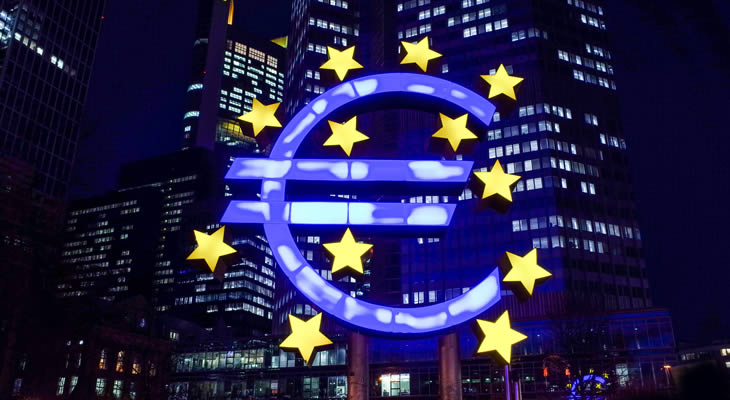GBP/EUR Exchange Rate Flat as Eurozone Inflation Slows
The Pound Euro (GBP/EUR) exchange rate is range bound this morning as markets react to the release of the Eurozone’s latest Consumer Price Index (CPI).
At the time of writing the Pound Euro GBP/EUR exchange rate remains virtually unchanged this morning, leaving the pairing down almost a cent through this week’s session.
Euro (EUR) Stalls as Eurozone CPI Figures Disappoint
The Euro (EUR) is struck in a narrow range against the Pound (GBP) this morning as markets react to the Eurozone’s latest CPI figures.
Data published by Eurostat revealed inflation in the bloc slowed from 2.2% to 2% in October, slipping below expectations of a more modest decline to 2.1%.
Most importantly however is that this now places inflation in the bottom of the European Central Bank’s (ECB) target range, with the possibility of price growth sliding further likely to raise questions over a potential rate hike from the ECB next year.
Pound (GBP) Exchange Rates Stabilise as House Prices Pick Up
Meanwhile the Pound (GBP) is holding steady against the majority of its other peers this morning following the release of the UK’s latest house price figures.
According to Nationwide’s house price index, domestic price growth clawed its way back up from a five-year low in November as house prices climbed from 1.6% to 1.9%, beating expectations of a more modest rally to 1.7%.
However the release was tempered somewhat by warnings that prices could begin to retreat again in the comings months as uncertainty grows.
Robert Gardner, chief economist at Nationwide suggests:
‘In the near term, the squeeze on household budgets and the uncertain economic outlook is likely to continue to dampen demand, even though borrowing costs remain low and the unemployment rate is near 40-year lows.’
GBP/EUR Exchange Rate Forecast: Will Upbeat Manufacturing Data Provide Sterling With a Reprieve from Brexit?
Looking ahead to the start of next week’s session, the Pound Euro (GBP/EUR) exchange rate may trend higher with the publication of the UK’s latest manufacturing PMI as economists forecast growth in the sector will have rebounded in November after striking a two-year low in October.
However these gains will likely be dependent on Brexit sentiment, with Sterling potentially left on the defensive if GBP investors remain pessimistic on the chance of Theresa May’s Brexit deal passing in Parliament.
Meanwhile the Euro could struggle through the first half of next week as the Eurozone’s own PMI figures are expected to confirm that the bloc’s private sector slowed to is worst levels since 2014 in November.


Comments are closed.